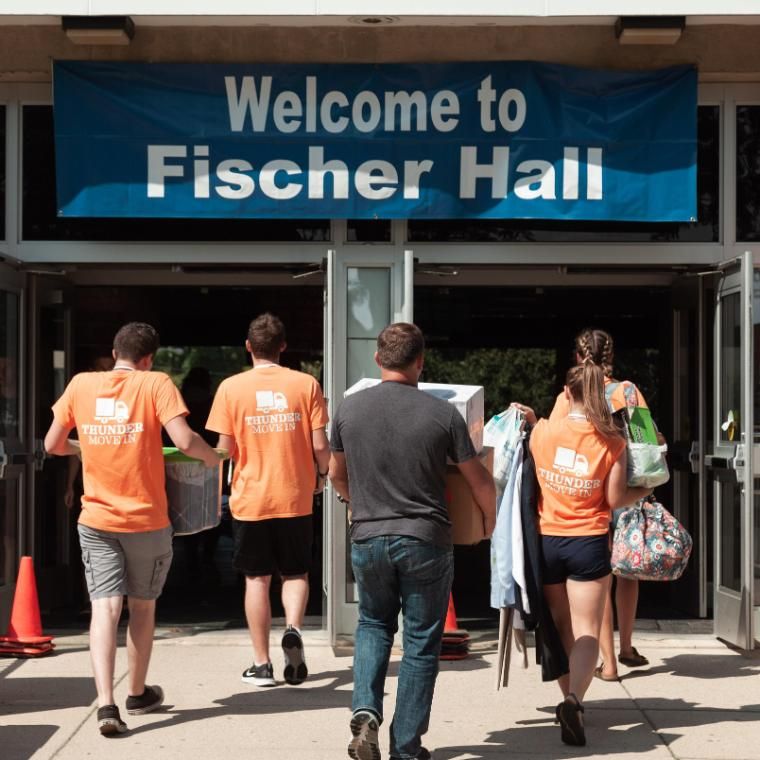Wheaton College Summer Institute Courses
Summer 2025 Courses
*Some courses are starting to fill (marked below), but we will keep a wait list in case any spots open up. Apply today to get one of your top choices.
Instructor: Misook Kim | Conservatory of Music
 In this class you will learn the inner theory of music and how it works including fundamental music concepts of notation, rhythm, meter, timbre, pitch, scales, keys, intervals, and chords. This exploration of music theory will include analysis Aural Skills (ear-training and sight-singing); and music composition. We will also listen to and enjoy music from a variety of genres: classical, jazz, and folk music from local and world contexts. (2 credits)
In this class you will learn the inner theory of music and how it works including fundamental music concepts of notation, rhythm, meter, timbre, pitch, scales, keys, intervals, and chords. This exploration of music theory will include analysis Aural Skills (ear-training and sight-singing); and music composition. We will also listen to and enjoy music from a variety of genres: classical, jazz, and folk music from local and world contexts. (2 credits)
Instructor: George Kalantzis | Biblical and Theological Studies
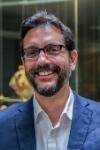 “Who do you say I am?” (Mt 16:15) continues to be the central question of the Christian faith with unique implications on salvation, redemption, and restoration. In this course we will explore how the New Testament and early Christians tried to identify and articulate a new "grammar of faith" that could both affirm the divinity of Christ (and the Holy Spirit) whilst at the same time confess God as one-in-three Persons without falling into polytheism. (2 credits, BITH)
“Who do you say I am?” (Mt 16:15) continues to be the central question of the Christian faith with unique implications on salvation, redemption, and restoration. In this course we will explore how the New Testament and early Christians tried to identify and articulate a new "grammar of faith" that could both affirm the divinity of Christ (and the Holy Spirit) whilst at the same time confess God as one-in-three Persons without falling into polytheism. (2 credits, BITH)
Instructors: Kim Sasser & Sarah Borden | English Literature

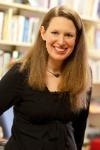 The Harry Potter series has been a global phenomenon, read by children and adults worldwide. Its success is easy to understand, given Rowling’s masterful storytelling. Under the surface of the entertaining stories is, however, substantive engagement with a variety of literary forms and long-standing symbolic traditions. This course will look at some of the literary features of the series, looking particularly at how the series may interact with Christian theological conversations such as the problem of evil, the nature of faith, visions of conversion and coming into life with Christ, and the virtue of hope. (2 credits, ENGL)
The Harry Potter series has been a global phenomenon, read by children and adults worldwide. Its success is easy to understand, given Rowling’s masterful storytelling. Under the surface of the entertaining stories is, however, substantive engagement with a variety of literary forms and long-standing symbolic traditions. This course will look at some of the literary features of the series, looking particularly at how the series may interact with Christian theological conversations such as the problem of evil, the nature of faith, visions of conversion and coming into life with Christ, and the virtue of hope. (2 credits, ENGL)
Instructor: Ray Phinney | Psychology
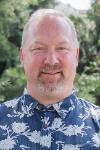 This course explores how neuroscientists study the human brain and the contemporary issues that arise. Lectures and lab experiences will focus on the tools used to study and understand the brain and their impact on understanding human thought, behavior, and emotion. Morning sessions will include lectures and seminar discussions that examine how the central nervous system is understood and related cultural/philosophical issues. Afternoon sessions will involve work with neural specimens, tissue, and other neuroscience lab techniques. (2 credits, NEUR)
This course explores how neuroscientists study the human brain and the contemporary issues that arise. Lectures and lab experiences will focus on the tools used to study and understand the brain and their impact on understanding human thought, behavior, and emotion. Morning sessions will include lectures and seminar discussions that examine how the central nervous system is understood and related cultural/philosophical issues. Afternoon sessions will involve work with neural specimens, tissue, and other neuroscience lab techniques. (2 credits, NEUR)
Student Testimonials
"I enjoyed my stay at Wheaton, everything from the intriguing discussions in neuroscience, to the wonderful chapel messages, to the incredibly welcoming community. I was blessed to be a part of the program and I encourage people to take it."
-Samuel, Summer 2022
"The Brain class has already come in handy to me as a student, and I really enjoyed the content!"
-Lucy, Summer 2024
Instructors: Dan Burden & Lisa Burden | Chemistry
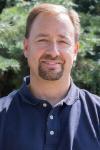
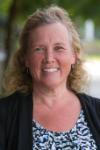 Big things happen in tiny spaces! Themes of nanoscience and nanotechnology span the news cycle, the natural sciences, and other applied areas of STEM, all to the glory of God! This course provides an interdisciplinary introduction to the field by engaging students in hands-on laboratory learning, while making specific connection to foundational ideas in biology, chemistry, and physics. Classroom learning sessions include, “What is Nanoscience and Nanotechnology?,” “Nanoscale Biology,” “Nanoscale Chemistry,” and “Nanoscale Physics,” as well as “Philosophical and Ethical Issues within Nanoscience.” Laboratory sessions will allow students to investigate the brilliant nanoscale features of butterfly wings, unveil size-dependent phenomena in Qdots, and participate in the latest government-sponsored research concerning biologically inspired nanovalves. Successful completion of a high school chemistry, biology, or physics course is recommended prior to taking this course. (2 credits, CHEM)
Big things happen in tiny spaces! Themes of nanoscience and nanotechnology span the news cycle, the natural sciences, and other applied areas of STEM, all to the glory of God! This course provides an interdisciplinary introduction to the field by engaging students in hands-on laboratory learning, while making specific connection to foundational ideas in biology, chemistry, and physics. Classroom learning sessions include, “What is Nanoscience and Nanotechnology?,” “Nanoscale Biology,” “Nanoscale Chemistry,” and “Nanoscale Physics,” as well as “Philosophical and Ethical Issues within Nanoscience.” Laboratory sessions will allow students to investigate the brilliant nanoscale features of butterfly wings, unveil size-dependent phenomena in Qdots, and participate in the latest government-sponsored research concerning biologically inspired nanovalves. Successful completion of a high school chemistry, biology, or physics course is recommended prior to taking this course. (2 credits, CHEM)
Student Testimonial
"Nanoscience has been the most rewarding class that I've ever taken. The professors and TAs helped me to achieve a new level of understanding, and through this class, I've learned much more about God's incredible creation through the little things He has made."
-Tim, Summer 2023
Instructor: Enoch Hill | Business & Economics
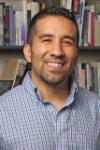 In this course, we will study some of the fundamentals of economics, including concepts such as ownership, prices, opportunity cost, supply and demand, and money (just economics). We will then build on our foundational understanding to reflect on normative questions (Just Economics). What should the objective of society be? How do we evaluate whether one outcome is better than another? And how does our faith influence our decisions? Along the way, we will enrich our exploration using real-world examples. How do we allocate limited vaccines? How do I determine what college to attend? How should we determine who gets into a particular class? Who can live in my neighborhood…or my country? (2 credits, ECON)
In this course, we will study some of the fundamentals of economics, including concepts such as ownership, prices, opportunity cost, supply and demand, and money (just economics). We will then build on our foundational understanding to reflect on normative questions (Just Economics). What should the objective of society be? How do we evaluate whether one outcome is better than another? And how does our faith influence our decisions? Along the way, we will enrich our exploration using real-world examples. How do we allocate limited vaccines? How do I determine what college to attend? How should we determine who gets into a particular class? Who can live in my neighborhood…or my country? (2 credits, ECON)
Student Testimonial
"I always knew God revealed Himself through the sciences but my experience at the Wheaton Summer Institute showed how God is revealed through economics as well."
-Connor, Summer 2022
Instructor: Jim Beitler | English Literature & Writing
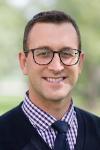 Speak, friend, and enter! This course journeys to J.R.R. Tolkien’s Middle Earth to explore the doctrine of creation, issues of stewardship and creation care, and human creativity. During our time together, we’ll discuss Tolkien’s creation story alongside the biblical account, influences on his writing and his processes of world-building, his meditations on fairy-stories and sub-creation, and his concern for nature and the environment. We’ll also watch selections from Peter Jackson’s LOTR films, considering how Jackson creatively adapted Tolkien’s world to the screen. At the end of the course, we’ll turn to “the end of all things,” reflecting on the topic of new creation and looking to the Alpha and Omega who declares, “Behold! I am making all things new!” (2 credits, ENGL)
Speak, friend, and enter! This course journeys to J.R.R. Tolkien’s Middle Earth to explore the doctrine of creation, issues of stewardship and creation care, and human creativity. During our time together, we’ll discuss Tolkien’s creation story alongside the biblical account, influences on his writing and his processes of world-building, his meditations on fairy-stories and sub-creation, and his concern for nature and the environment. We’ll also watch selections from Peter Jackson’s LOTR films, considering how Jackson creatively adapted Tolkien’s world to the screen. At the end of the course, we’ll turn to “the end of all things,” reflecting on the topic of new creation and looking to the Alpha and Omega who declares, “Behold! I am making all things new!” (2 credits, ENGL)
Student Testimonial
"I took the Tolkien class at WCSI, which was super fun and extremely enriching! I loved getting to dive into some of my very favorite works of literature and soak in the rich Christian perspective that is imbued in Tolkien’s writing. It was such a joy to be a part of Wheaton’s summer program! I learned so much and made so many friends and memories that I will cherish forever."
-Susanna, Summer 2022
Instructors: Michael Wilder, Daniel Horn, Sarah Holman, Hyejin Cho, Michael Messer, Denise Gamez, Christopher Lorimer | Music Performance
 In this course, talented young musicians will study with Wheaton College music faculty in private and group lessons, master classes, and performance experiences. The course provides tools to guide young artists as they grow in their faith and understanding of what it means to be a Christian musician. Activities on campus will include faculty recitals, student performances, and repertoire study. Students will explore the arts in the city of Chicago with possible visits to the Art Institute, the Grant Park Symphony, and more. (2 credits)
In this course, talented young musicians will study with Wheaton College music faculty in private and group lessons, master classes, and performance experiences. The course provides tools to guide young artists as they grow in their faith and understanding of what it means to be a Christian musician. Activities on campus will include faculty recitals, student performances, and repertoire study. Students will explore the arts in the city of Chicago with possible visits to the Art Institute, the Grant Park Symphony, and more. (2 credits)
If applying for Music Performance, there is additional audition requirement that will be requested as part of the application process.
Student Testimonial
"I participated in the music class and I would definitely do this again, no doubt. I loved it!"
-Kay, Summer 2022
Optional Worship Leadership opportunity: If student has experience and interest in worship leading, they may include an additional video sample that you will be prompted to submit to be considered for a WCSI chapel leadership position. These students will have additional rehearsal obligations, above and beyond the Music Performance class expectations and will be supervised by Dr. Donte Ford.
Instructor: Mark Jonas | Education and Philosophy
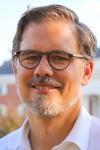 Do you love the works and worlds of CS Lewis? If so, then come and explore this course where we will examine the relationship between philosophy and imagination in some of the non-fiction and fiction works of C.S. Lewis. Lewis wrote in a variety of genres—philosophy, apologetics, letters, literary criticism, fantasy, mythology, sermons and so on. While his literary works vary in genre, nearly all of them deal with issues of significant philosophical and theological importance. He wanted his writings to transform the way his readers saw and interacted with the world—he wanted his writings to inspire us to be better people who live more flourishing lives. By carefully examining the ways he integrates rational argument and evocative imagery, we will better understand the answers he gives to perennial questions about the nature of human beings and God, and hopefully be transformed by them. (2 credits, PHIL)
Do you love the works and worlds of CS Lewis? If so, then come and explore this course where we will examine the relationship between philosophy and imagination in some of the non-fiction and fiction works of C.S. Lewis. Lewis wrote in a variety of genres—philosophy, apologetics, letters, literary criticism, fantasy, mythology, sermons and so on. While his literary works vary in genre, nearly all of them deal with issues of significant philosophical and theological importance. He wanted his writings to transform the way his readers saw and interacted with the world—he wanted his writings to inspire us to be better people who live more flourishing lives. By carefully examining the ways he integrates rational argument and evocative imagery, we will better understand the answers he gives to perennial questions about the nature of human beings and God, and hopefully be transformed by them. (2 credits, PHIL)
Student Testimonial
"I continue to think about and use everything we learned. Dr. Jonas is such a special teacher; he creates a space for you to have fun, hear unexpected stories, allow everyone to have a voice, explore new ideas, and be super inspired!"
-Ivy, Summer 2024
Instructor: Greg Anderson | Graduate School Chaplain
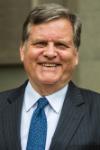 Wheaton College has prepared people for ministry since its founding. This course will help young people to consider and explore a calling to a full-time ministry or how to make their marketplace or professional career a ministry. There will be lectures from and discussions with Wheaton professors, Billy Graham Scholars from around the world, pastors, and representatives from mission agencies and para-church organizations. There will be exercises to help the students know and share their faith and to develop a pastoral and world Christian perspective. Students will put those ministry skills into practice on each other in the context of a comfortable but challenging classroom community. (2 credits, CFM)
Wheaton College has prepared people for ministry since its founding. This course will help young people to consider and explore a calling to a full-time ministry or how to make their marketplace or professional career a ministry. There will be lectures from and discussions with Wheaton professors, Billy Graham Scholars from around the world, pastors, and representatives from mission agencies and para-church organizations. There will be exercises to help the students know and share their faith and to develop a pastoral and world Christian perspective. Students will put those ministry skills into practice on each other in the context of a comfortable but challenging classroom community. (2 credits, CFM)
Student Testimonial
"I grew so much in confidence during my time at Wheaton. The Christ-centered encouragement I received from my professor and from my new friends really brought me out of my shell! By the end of two weeks, I was asking questions and offering thoughts in class, meeting new people every day, and even speaking in chapel!"
-Sarah, Summer 2022
Instructor: Brian Hunt | Applied Health Science
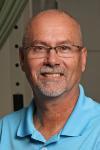 This course explores how the human body responds to exercise. Lectures and lab experiences will focus on basic cardiovascular, respiratory, and muscular responses. Morning sessions will include lectures and seminar discussions while afternoon sessions will primarily involve laboratory experiences where students will serve as their own study subjects! These labs will allow students to get a better sense of their own cardiovascular, respiratory and muscular health. (2 credits, BHS)
This course explores how the human body responds to exercise. Lectures and lab experiences will focus on basic cardiovascular, respiratory, and muscular responses. Morning sessions will include lectures and seminar discussions while afternoon sessions will primarily involve laboratory experiences where students will serve as their own study subjects! These labs will allow students to get a better sense of their own cardiovascular, respiratory and muscular health. (2 credits, BHS)
Student Testimonial
"I really enjoyed the course and professor Hunt. He made it extremely fun and interactive, and because of this class I am interested in pursuing the medical field."
-Will, Summer 2023
Instructors: Ryan Kemp & Adam Wood | Philosophy
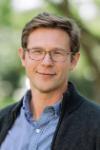
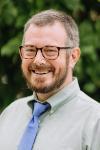 Peter's first letter enjoins Christians always to be ready "to make your defense to anyone who asks you for a reason for the hope that is in you" (1 Pet. 3:15, ESV). Peter's word "defense" is apologia — so Peter is commending, in some sense, apologetics. But in what sense? Christian theologians and philosophers have differed considerably in their understanding of what it might mean to give a "reason" (logos) for the hope that is in us. Does this mean we should try to prove what we believe by faith? That we should reason about such theological matters such as divine providence or the incarnation? Or is faith something different — say, a trusting "leap" into what might seem by worldly standards irrational (or even absurd!)? This course will introduce students to the ways four great Christian thinkers have approached questions such as these: Thomas Aquinas, Blaise Pascal, Søren Kierkegaard and Fyodor Dostoevsky. Its co-teachers disagree, to some extent, about the "right" answers, so our aim will be partly practical: modeling for students what charitable disagreement and dialogue can look like. (2 credits, PHIL)
Peter's first letter enjoins Christians always to be ready "to make your defense to anyone who asks you for a reason for the hope that is in you" (1 Pet. 3:15, ESV). Peter's word "defense" is apologia — so Peter is commending, in some sense, apologetics. But in what sense? Christian theologians and philosophers have differed considerably in their understanding of what it might mean to give a "reason" (logos) for the hope that is in us. Does this mean we should try to prove what we believe by faith? That we should reason about such theological matters such as divine providence or the incarnation? Or is faith something different — say, a trusting "leap" into what might seem by worldly standards irrational (or even absurd!)? This course will introduce students to the ways four great Christian thinkers have approached questions such as these: Thomas Aquinas, Blaise Pascal, Søren Kierkegaard and Fyodor Dostoevsky. Its co-teachers disagree, to some extent, about the "right" answers, so our aim will be partly practical: modeling for students what charitable disagreement and dialogue can look like. (2 credits, PHIL)
Student Testimonial
"The Lord used this program to affirm my calling to ministry, provide me with a community of young Christians that I see myself being friends with for all of this life and the next, and to challenge me intellectually. What I learned at Wheaton has not just remained confined to a two-week intensive. I have seen myself and my fellow classmates applying what we learned at WCSI the second we left, and still to this day."
-James, Summer 2024
Instructors: Susan Dunn-Hensley & Ben Weber | English Literature & Kailey Bell | Communication
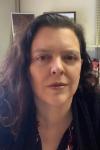
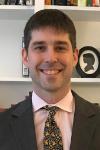
 In this course, English and Arena Theater faculty will guide students through two of Shakespeare’s greatest plays, A Midsummer Night’s Dream and Macbeth, as they become better readers and actors of Shakespeare’s works. As students analyze Shakespeare’s sonnets and plays in the morning sessions, they will ask together: Who was Shakespeare? How can we better understand Shakespeare’s language? How did the historical and cultural events of the Renaissance and the Reformation influence Shakespeare and his work? How does Shakespeare’s work help us ask and answer questions of faith and theology? In the afternoon sessions, students will learn how to speak Shakespeare’s verse effectively and make interpretive choices as actors. This course will give students a Shakespearience like no other. (2 credits, ENGL)
In this course, English and Arena Theater faculty will guide students through two of Shakespeare’s greatest plays, A Midsummer Night’s Dream and Macbeth, as they become better readers and actors of Shakespeare’s works. As students analyze Shakespeare’s sonnets and plays in the morning sessions, they will ask together: Who was Shakespeare? How can we better understand Shakespeare’s language? How did the historical and cultural events of the Renaissance and the Reformation influence Shakespeare and his work? How does Shakespeare’s work help us ask and answer questions of faith and theology? In the afternoon sessions, students will learn how to speak Shakespeare’s verse effectively and make interpretive choices as actors. This course will give students a Shakespearience like no other. (2 credits, ENGL)
Student Testimonial
"After my two weeks at Wheaton, I know without a doubt that this is my dream school. The Shakespearience was absolutely the course for me! From the beautiful campus to the beyond incredible Theater department (woot woot!), I would 100% recommend the Summer Institute."
-Savana, Summer 2022
Instructor: Emily McGowin | Bible & Theology
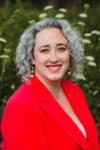 This course enables students to think more deeply about God, the Bible, and their life of discipleship. During the first week, students will learn how to read and teach the Bible with clarity and insight. During the second week, students will reflect on important Christian doctrines with the aim growing in love for God and their neighbors. (2 credits, BITH)
This course enables students to think more deeply about God, the Bible, and their life of discipleship. During the first week, students will learn how to read and teach the Bible with clarity and insight. During the second week, students will reflect on important Christian doctrines with the aim growing in love for God and their neighbors. (2 credits, BITH)
Student Testimonial
"I got the opportunity to experience two weeks at Wheaton College, and what an amazing experience it was. From eating my professor's homemade biscuits and discussing the Bible and Theology on the green of Blanchard's lawn to playing sand volleyball outside Fisher Hall, I made memories, met friends, and learned invaluable lessons that I will carry with me for a lifetime."
-Faith, Summer 2022
College Policy
The Wheaton College Summer Institute provides its students with a college education. This comes with certain rules and regulations such as:
(1) You will receive a transcript with a letter grade. You may be required to produce this transcript when applying to colleges.
(2) If you remove yourself from the WCSI after the first day of class and before the withdrawal deadline, you will receive a W (for “withdrawn”) on your transcript. You will be eligible for a partial refund.
(3) If you remove yourself from the program after the withdrawal deadline, you will receive whatever grade you earned, on your transcript and will not be issued a refund. The withdrawal deadline occurs halfway through the WCSI (the first Friday of the program is the final day to withdraw).
Accessible Education
Wheaton College is committed to providing access and inclusion for all persons with disabilities, inside and outside the classroom. Students are encouraged to discuss with the WCSI staff if they foresee any disability-related barriers in a course. Students who need accommodations in order to fully access this course’s content or any part of the learning experience should connect with their faculty about those requirements. Learning and Accessibility Services (LAS) is available to help facilitate those accommodations or communicate with faculty as needed. LAS is also available to provide information about the accommodations process in the college setting. Please visit: http://wheaton.edu/las or email las@wheaton.edu to schedule an appointment.

